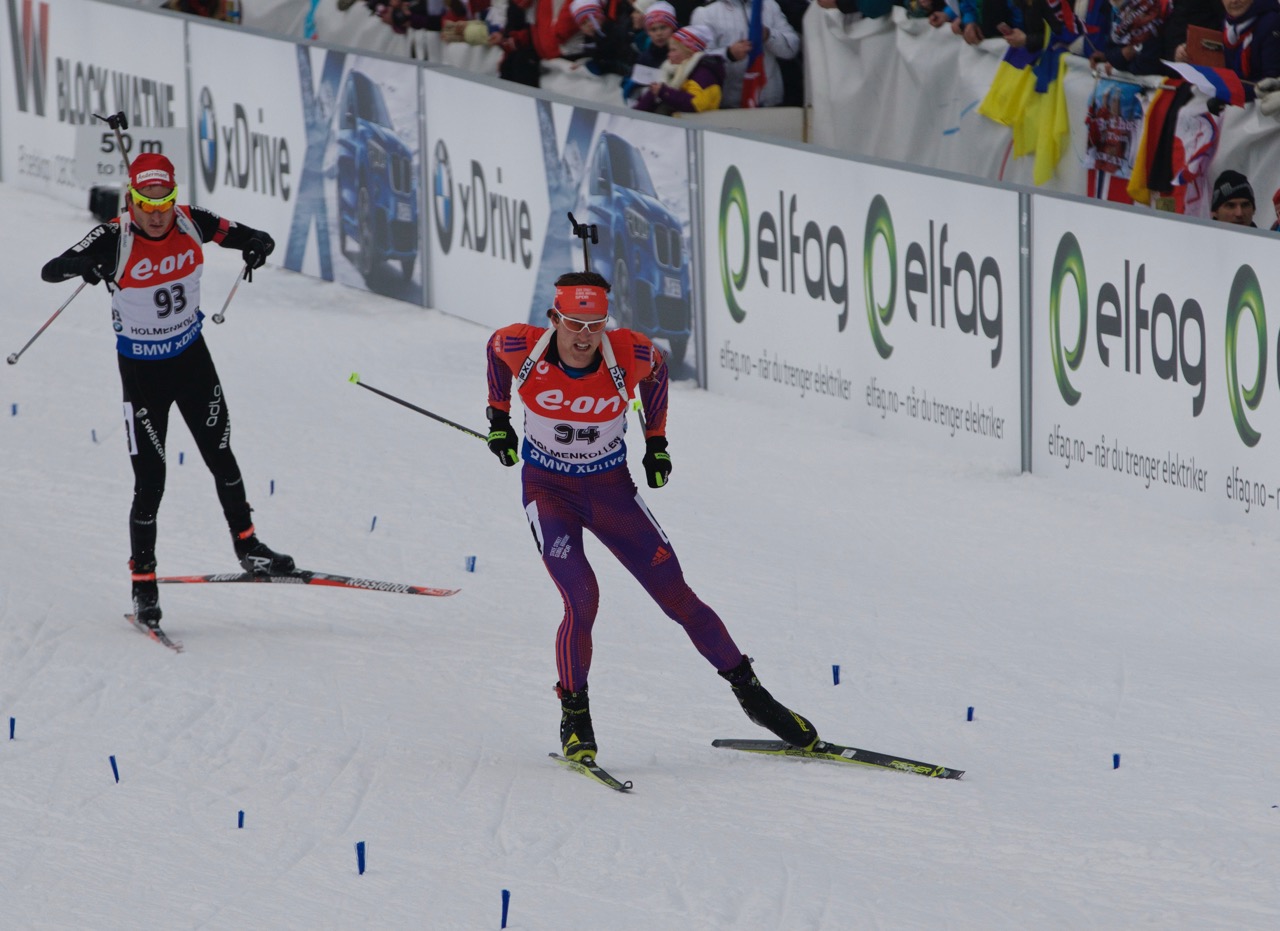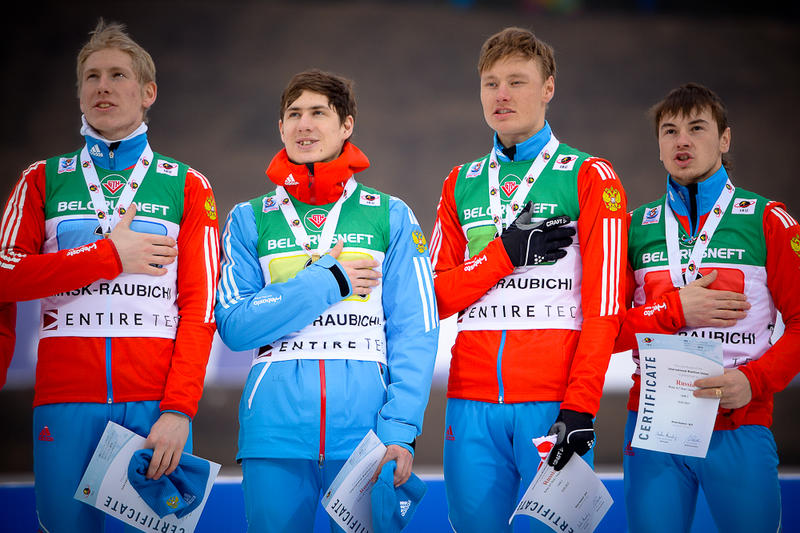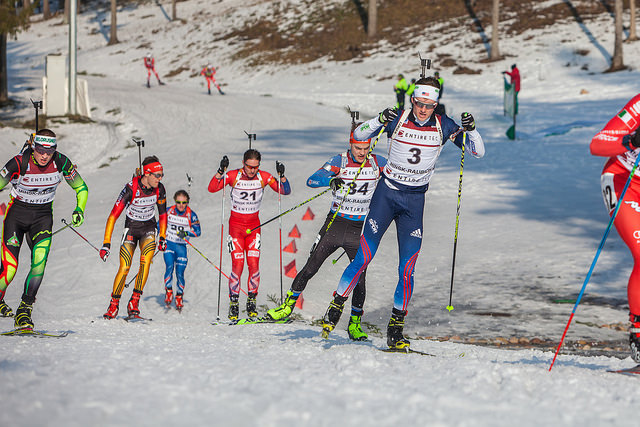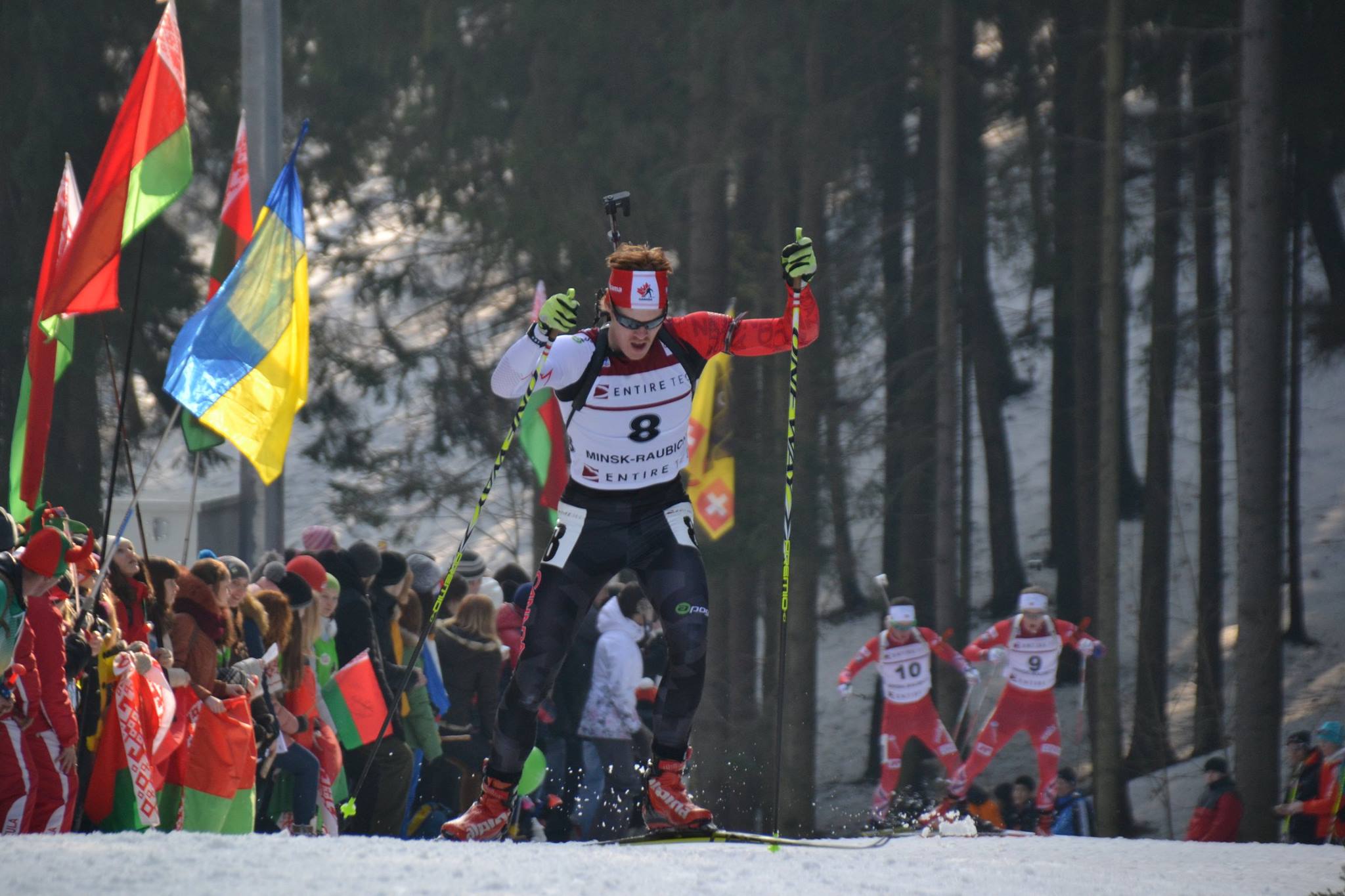
OSLO, Norway—“What’s done is done, they will have their punishments, but it’s just– it’s not cool, man.”
That’s how U.S. biathlete Sean Doherty, still a junior, reacted to one of his former competitors getting suspended for doping. The case has raised uncomfortable questions about when doping starts in elite sport, with mounting evidence that even young athletes are not competing on a level playing field.
On Thursday news broke that a third biathlete had tested positive for meldonium, the metabolic modulator also known as mildronate which was added to the World Anti-Doping Agency (WADA) Prohibited List on January 1. Earlier this winter, Ukraine’s Olga Abramova and Artem Tshchenko were also suspended for the same offense.
This time the offender was a young Russian athlete, Eduard Latypov. A first-year senior, Latypov won a second-tier IBU Cup sprint in Brezno-Osrblie, Slovakia, on February 14.
Latypov was not identified by the IBU, which as a policy does not name implicated athletes or their nationalities until they either waive their right to have the ‘B’ sample opened or the ‘B’ sample tests positive.

But the Russian Biathlon Union announced that Latypov was the athlete in question in a brief press release. The organization offered no comment on the situation and Latypov seemingly has not spoken to the press.
That makes him unlike other athletes who have tested positive for the drug, many of whom offered explanations of how they had been prescribed the drug months or years ago before it was added to the list.
Since many of these athletes have shown a pattern of long-term meldonium use, this raises questions of Latypov’s own use, even if it wouldn’t have constituted a violation before January 1.
A 2015 World Junior Champion, Latypov is the second Russian biathlete to have been found doping shortly after leaving the junior ranks.
Alexander Loginov, a four-time medalist at 2013 World Junior Championships, was revealed to be doping just months after those competitions when retroactive testing carried out in 2014 found traces of recombinant erythropoietin (EPO), a blood-doping drug, in a sample collected in November 2013.
Antidoping work is carried out at World Youth and Junior Championships, but in Loginov’s case, the amount of EPO present in his later sample was only detectable using an improved method which was used in 2014.
While doping is accepted as a regrettable feature of elite sport, the possibility of juniors resorting to cheating is still an emotional punch in the gut to some athletes and fans.

“I was such a baby when I was 15, competing internationally!” Sean Doherty said after finishing the 20 k individual here at senior World Championships on Thursday. “I had no idea that people would break the rules! It never crossed my mind. It’s not something that I would think of. Ignorance is bliss in its own little way.”
Teammate Jakob Ellingson agreed.
“When I remember my first time at the World Junior Championships, it was a lot to take in for me all at once,” he wrote in an email. “I just assumed [other athletes] had spent the same and probably more time training than I had. So no, I did not go into those races thinking, that no matter what I do, there are other kids doping.”
And even after a few different trips to World Junior Championships, Ellingson’s attitude hadn’t changed.
“Over the years I have gotten to hang out with some of the Russian juniors in between competitions,” he wrote. “It may just be the person I am, but I always left after hanging out with them thinking that we were the same, those guys were just born in Russia, and had Russian coaches, while I was born in the USA and have a Czech coach. I thought, and maybe it’s naive of me, but I still think that most of them are just working very hard on an intense training plan. And that is why they constantly have top-performing juniors.”
A six-time competitor at World Youth and Junior Championships (including his last edition this year in Romania), Doherty has gone on to a successful senior career for the U.S. biathlon team. A 2014 Olympian, he has also competed at two senior World Championships and earned his first World Cup top-20’s this season.

The first time Doherty competed against Latypov was in 2013, when they were both in the youth category in Obertilliach, Austria. Doherty won two silvers and a gold in individual competition; Latypov had a top finish of 18th.
Two years later in Minsk, Belarus, both had moved up to the junior category, and Latypov finished sixth in the sprint before moving up to win the pursuit. Doherty earned bronze in the sprint, finishing 16.8 seconds ahead of Latypov, who had one more penalty than the American.
“I just think doping in general is a plague on the sport,” Doherty said. “I think it’s a shame. I take so much pride in what I do, in representing my country and myself in this sport that I so love. It’s a real shame when other people don’t hold it in as high a standard, and think that they can cheat and it’s okay.”
Another athlete who competed against Latypov is Aidan Millar of Canada, who finished eighth in that same World Junior Championships sprint in Minsk.
“As a junior it’s pretty hard to wrap your head around the fact that some of the people you are competing against might be doping,” Millar wrote in an email. “When Alexander Loginov got caught a few couple years ago it was a bit of an eye opener to see that juniors or young athletes were using performance enhancing drugs.”
While Doherty said it was a “bummer” looking back, he was still upbeat, saying that there’s “still no doping for shooting” and that he was happy that in some cases, he beat people who later turned to doping.
Millar was more open about how the revelations changed his feelings about his junior career.
“Looking back at last season’s World Juniors, it makes me feel cheated,” Millar wrote. “I dealt with some big injuries that year but trained super hard and had a great result. But to think that somebody cheated to do well makes me wonder if you can get to the top without cheating. It’s a sad thought, but in a sport that is known for doping I think we need harsher penalties for those who cheat. Why not a lifetime ban for a first time offender?”
Both also lamented the fact that using performance-enhancing drugs may have long-term health effects, and that athletes their age should not be signing themselves up for such long-lasting dangers so early in their careers.
“That’s really a high cost,” Doherty said. “And then the cost of getting banned… With all of this doping stuff in so many sports lately, it’s really just sad that people aren’t morally sound enough to avoid doping.”
Chelsea Little
Chelsea Little is FasterSkier's Editor-At-Large. A former racer at Ford Sayre, Dartmouth College and the Craftsbury Green Racing Project, she is a PhD candidate in aquatic ecology in the @Altermatt_lab at Eawag, the Swiss Federal Institute of Aquatic Science and Technology in Zurich, Switzerland. You can follow her on twitter @ChelskiLittle.



